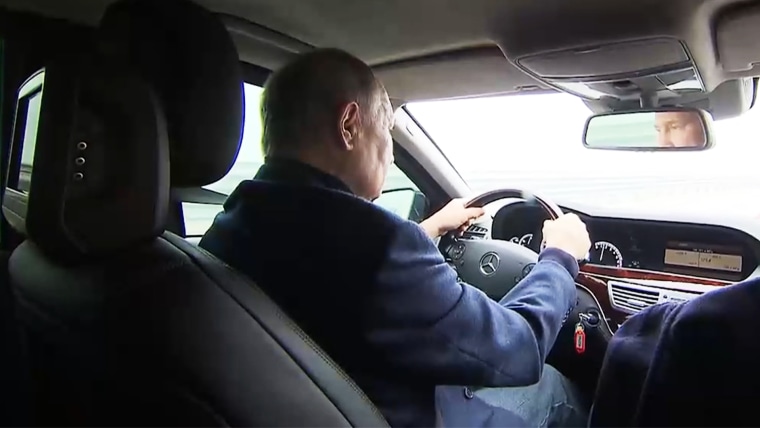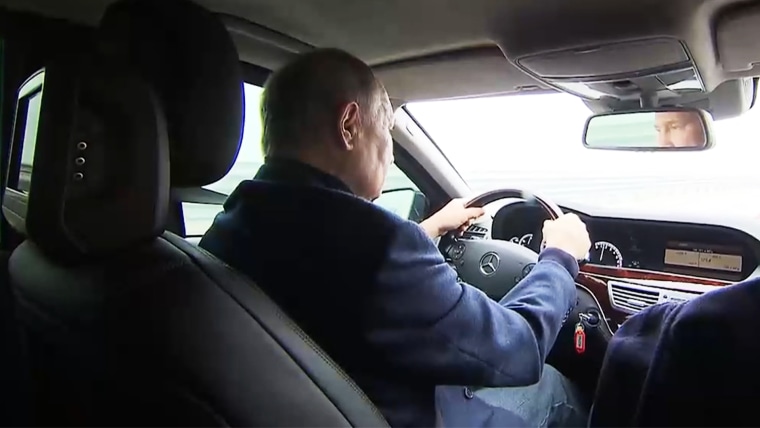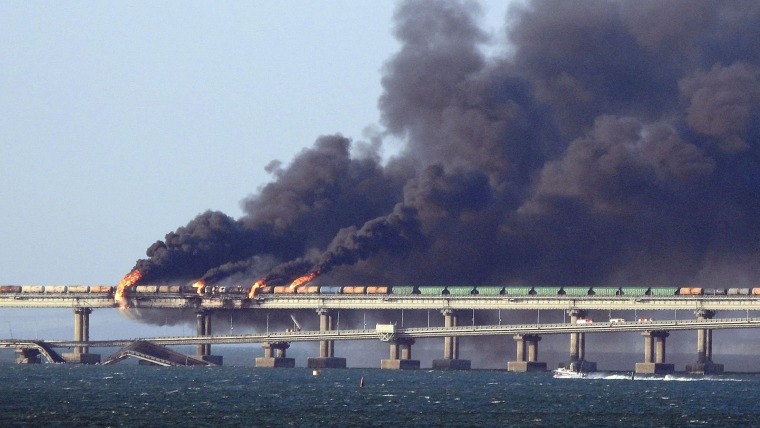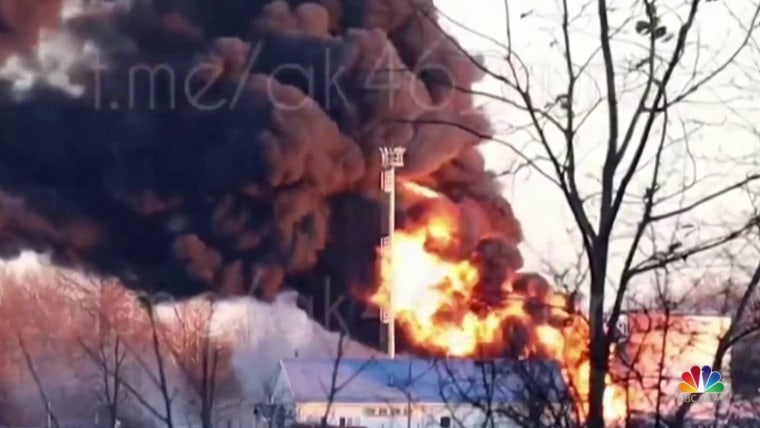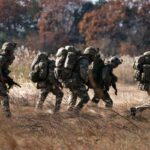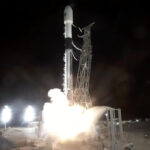A Biden administration official recently told members of Congress that Ukraine has the military capability to retake Crimea, but some officials are concerned any large-scale offensive that threatens Russia’s hold on the peninsula could push Vladimir Putin to use nuclear weapons, say two U.S. officials familiar with the matter.
The late November Ukraine briefing to some members of Congress included discussion of the reasons Ukraine will continue to need U.S. weapons and equipment for the foreseeable future. The two officials said a Biden official, when asked during the briefing about continued support for the Ukrainian military and whether it would try to retake Crimea, responded that Ukraine now has the ability to take it back.
Asked about the response, a U.S. official said Ukraine has no near-term objective to retake Crimea and that a military offensive is not imminent but did acknowledge that Ukraine has shown resilience and perseverance throughout the war. Administration officials say they believe three recent deadly drone strikes against Russian military bases were carried out by Ukrainians, although they say it’s still not clear whether the Zelenskyy government ordered them directly.
Washington and other governments have provided Kyiv with more powerful weapons, including HIMARS artillery, that have inflicted serious damage on Russian forces. U.S. and Western perceptions of Ukraine’s armed forces have changed since the February invasion, when U.S. and European officials worried Russian troops and tanks would crush their adversaries in a matter of days or weeks. Senior U.S. military officers and Western governments say Ukraine has shown ingenuity and grit in fighting a larger, better-armed military and quickly incorporated new weapons systems provided by NATO members.
The Ukrainians “continue to shock the world with how well they’re performing on the battlefield,” a U.S. official said.
The Biden official’s apparent confidence in Ukraine’s capabilities comes as the administration debates whether to grant the continued requests of Ukrainian President Volodymyr Zelenskyy’s government for more powerful weaponry, like ATACMS missile systems and tanks, and as Ukraine says Russia is preparing to send 200,000 fresh troops to attack Kyiv.
A spokesperson for the National Security Council declined to comment.
‘The red line’
No Ukrainian offensive in Crimea is believed to be imminent, officials and experts say, mainly because the current fight does not support it.
Ukraine is struggling and has lost some ground around Bakhmut in the east. The two sides are in a virtual standstill there, and U.S. officials assess that based on where the Ukrainian troops and battlefield lines are now, the Ukrainian military will move northeast in the coming months, rather than south to Crimea.
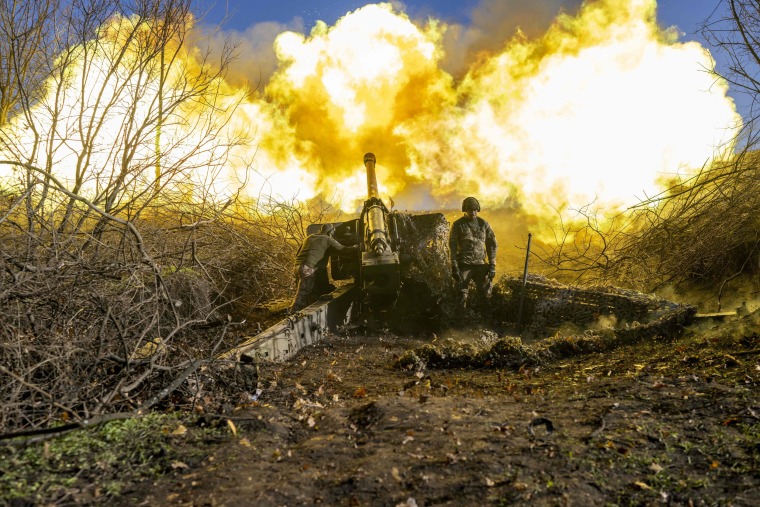
“A lot would have to happen militarily first” before Ukraine could begin a real offensive to retake Crimea, a U.S. official said.
Some administration officials, however, are privately discussing what could happen if Ukraine launches an offensive into Crimea, which Russia has held since 2014, and U.S. officials are concerned Putin could feel backed into a corner.
“Putin may react more strongly to Crimea,” a U.S. official said.
A central concern is that a real threat to Russian control could push Putin to use a dirty bomb or other nuclear device, one former and two current officials said. “That’s the red line,” a former U.S. official said.
Three U.S. officials stressed that the U.S. has not seen any indications that Russia is preparing to use a nuclear weapon or a dirty bomb right now.
In addition, a real fight for Crimea would include heavy battlefield losses on both sides, and taking it back would be a daunting task for Ukrainian forces because of the heavy Russian military presence and the difficult geography, military experts say. Bloody battles were fought over the area in the Russia civil war and World War II.
The peninsula, which juts south into the Black Sea, is connected to mainland Ukraine by a narrow isthmus. Russia has up to 70,000 troops defending the peninsula’s northern approaches, and they are dug in, two U.S. officials said.
Ukraine lacks sufficient airborne or naval forces that could launch effective attacks against the dug-in forces.
The Ukrainians would have better prospects attacking other Russian targets on the mainland in eastern Ukraine, where Russian troops are more exposed, experts and a U.S. official said.
If Ukraine made more advances against Russian forces in eastern and southern Ukraine, it could be better placed to eventually strike at Crimea, experts and a U.S. official said.
Unclaimed attacks
Some Biden administration officials are already concerned about continued Ukrainian strikes inside Russia that could provoke a stronger response from Putin and spread the conflict to Ukraine’s neighbors.
A series of unclaimed attacks have targeted Russian forces in Crimea since July, including a drone strike that hit Russia’s Black Sea fleet in Sevastopol and explosions at a suspected Russian ammunition dump. In October, Ukraine indirectly claimed credit for damaging the Kerch Bridge in eastern Crimea, which connects it to mainland Russia.
While administration officials believe Ukrainians carried out the three recent drone strikes against Russian bases, they don’t think they were made with drones provided by the U.S.
The White House was surprised by the strikes, two U.S. officials and a U.S. defense official said, creating a moment of frustration with the government in Kyiv, as occurred after the Kerch Bridge attack and the killing of the daughter of a close Putin ally. But other officials said that the frustration has been going on since the invasion and that in some cases it helps the U.S. to have plausible deniability about an incident.
U.S. officials concede that Ukraine has taken a series of escalatory actions against Russia without informing the U.S. or Western allies in advance.
A U.S. official said Ukraine does make its own battlefield decisions, but the White House is confident that Ukraine would not begin an extensive operation like re-taking Crimea without notifying the U.S. in advance.
Attacks deep inside Russian territory, which the Kremlin has blamed on Ukraine, have also raised concerns in Washington and European capitals that Kyiv could overplay its hand and provoke more escalatory action from Russia and derail any chance of peace talks, Western officials said.
Nuclear tensions with Russia spiked in October, but they have since calmed considerably, the officials said, and there are no U.S. intelligence assessments that Putin plans to use a nuclear weapon at this time.
Secretary of State Antony Blinken, Defense Secretary Lloyd Austin, National Intelligence Director Avril Haines and the chairman of the Joint Chiefs, Gen. Mark Milley, held a closed briefing for House members on Ukraine on Thursday morning.

